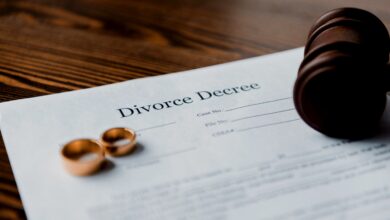What are the types of damages arising from personal injury?

If you are injured because of the negligence of another person or entity, you might be able to recover financial compensation for your losses. But before you bring an effective claim against those accountable for your injuries, it is essential to know the different kinds of damages associated with these cases. Personal injury claims include physical, emotional, and financial damages. Victims of negligence might be able to recover compensation for past, present, and future medical costs, lost wages, pain and suffering, and much more. Knowing the classifications and amounts associated with damages can help when it comes time to make a decision on whether suing is the right decision.
Read More: Things to Know Before You Hire a Personal Injury Attorney
What Are Damages?
Damages refer to the financial compensation that the law permits victims to recover when it is shown that a defendant has breached their duty towards another party or committed a violation of some right.
A damages award can be set after a negotiated injury settlement– between the parties, their insurance companies, and their lawyers, for instance. And, in the rare event that a personal injury lawsuit makes it all the way to trial, a damages award might be ordered by a judge or jury.
There are three types of personal injury damages: general, special, and punitive. General and special damages are both considered compensatory damages, meaning they intend to return compensation to victims for their losses. These damages are sometimes known as “non-economic” and “economic.”.
A third type of damages, punitive damages, may be granted in cases where extreme recklessness caused the injury. Punitive damages are much less common in personal injury cases than general or special damages.
Compensatory Damages
Most personal injury damages are classified as “compensatory,” meaning that they are meant to compensate the injured plaintiff for what was lost due to the accident or injury.
A compensatory damages award is intended to make the injured plaintiff “whole” again from a monetary standpoint (to the extent that’s possible). This means trying to place a dollar figure on all the repercussions of an accident. You can split compensatory damages into two main categories: special and general.
Special damages (also referred to as “economic damages”) compensate plaintiffs for out-of-pocket costs related to their injuries. Examples consist of:
- lost wages (past and future)
- medical bills (past and future)
- the cost to fix or replace damaged property
- household services while the plaintiff is recovering
General damages (also called “non-economic damages”) are more difficult to calculate than special damages. They are meant to compensate plaintiffs for intangible losses related to an injury. Examples include:
- pain and suffering (physical and mental)
- physical disability or disfigurement
- loss of enjoyment of life
- loss of consortium
Read More: How Can I Prove My Pain and Suffering in Personal Injury Case?
Punitive Damages
In cases where the defendant’s conduct is deemed especially egregious or extremely careless, a personal injury plaintiff may be granted punitive damages along with any compensatory damages award. Punitive damages are intended to punish defendants for their bad actions and also to serve as a deterrent. Since it isn’t unusual for punitive damages awards to top tens of millions of dollars, a lot of states have set some kind of cap on punitive damages awards in personal injury claims.
Understanding how damages work is necessary any time you’re considering making a claim for injuries, in or out of court. Determining how to prove the different classifications of damages that make up your accident-related losses and putting your best case together is essential. To that end, there’s no substitute for having a knowledgeable personal injury lawyer on your side. If you have been injured in an accident, call the Law Offices of Tim D. Wright today for more information about your legal rights and how we can help you recover the compensation you deserve.











